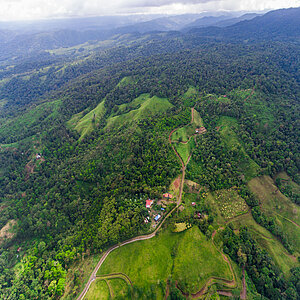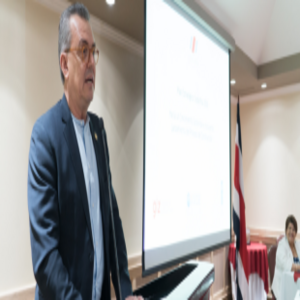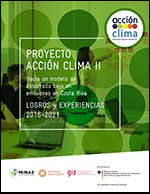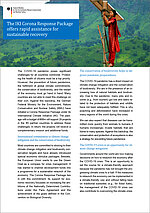Support of Costa Rica's carbon neutrality strategy as a model for low carbon development (phase II)
Costa Rica is looking to position itself as a regional climate action champion. This project therefore aimed to help the Costa Rican government in its low-emission development efforts throughout the economy and civil society. Other goals include boosting the expertise of local actors and developing tools to implement the climate neutrality strategy. One focus were improvements to national legislation and institutional processes as well as setting up a national system for monitoring climate targets. Funding opportunities for climate action programmes were also being explored as well as incentives for climate-friendly business. Phase II builded on the success of the preceding project, which helped relevant actors expand their climate action competencies while introducing climate change mitigation programmes in the coffee and transport sectors. By achieving international recognition for its activities, Costa Rica is now a role model for other countries in the region.
- Countries
- Costa Rica
- IKI funding
- 5,650,000.00 €
- Included preparation phase
- 93,179.28 €
- Duration
- 05/2015 till 04/2021
- Status
- completed
- Implementing organisation
- Deutsche Gesellschaft für Internationale Zusammenarbeit (GIZ) GmbH
- Political Partner
-
- Ministry of Environment and Energy (MINAE) - Costa Rica
- Implementing Partner
-
- Ministry of Environment and Energy (MINAE) - Costa Rica
State of implementation/results
- Project completed.
- The project provided an interface function for projects of the International Climate Initiative in the region Central America and Caribbean since January 2021; it coordinated exchange formats and conducted knowledge management.
- The project accompanied the development of the Territorial Strategy for a Decarbonized and Inclusive Economy by 2050, which the Ministry of Planning uses as the basis for its Long-Term Strategic Plan.
- Support was provided for the production of a series of short films to promote climate-friendly behavior and travel in the country.
- The project supported the development of a mitigation measure in the waste sector (NAMA Waste Management) and developed a NAMA Support Project (NSP) to accompany the implementation for organic waste.
- Through co-financing from the Foundation Costa Rica Estados Unidos (CRUSA), eight municipalities and six public-private alliances were supported to implement innovative waste projects: 20 municipalities were supported in calculating their GHG inventories and developing action plans to implement mitigation measures. An incubation program accompanied seven startups implementing adaptation or mitigation as part of their business model. The goal was to mobilize additional financial resources.
- The project organized a series of climate tables for the private as well as the financial sector to engage relevant stakeholders from both sectors in the climate dialogue.
- Together with the banking regulator SUGEF, the project developed a method to register information on private climate finance flows. In addition, an overview of all international cooperation projects implemented between 2010 and 2019 with a focus on climate change was established.
- Relevant modules on co-benefits, climate finance and mitigation were developed for the national climate monitoring system SINAMECC. Training materials help various stakeholders to enter their data into the system.
- The Costa Rican Civil Society Climate Advisory Council 5C and the Scientific Advisory Council 4C were accompanied by the project in their establishment and have started their work with the support of the project.
- The platform supported by the project has been actively used: cambioclimatico.go.cr
Latest Update:
04/2024
Further links
Project relations
Legend:
The link has been copied to the clipboard








![[Translate to English:]](/legacy/_processed_/5/5/csm_Indien_EE_Solar_Frau_bfcf99c425.jpg)



